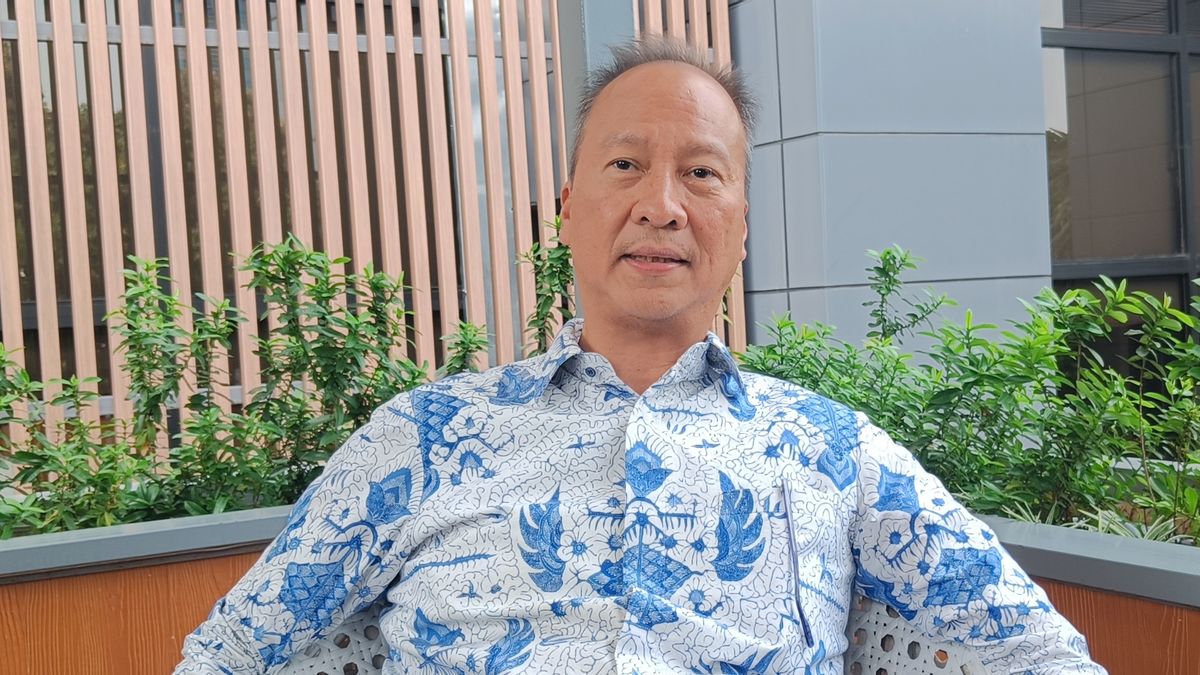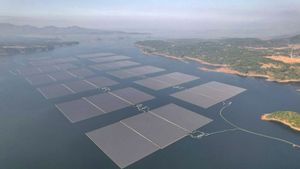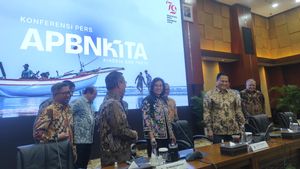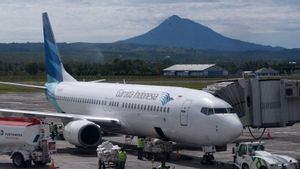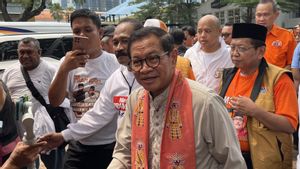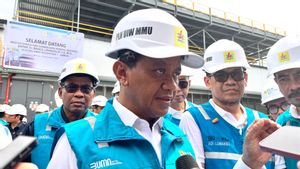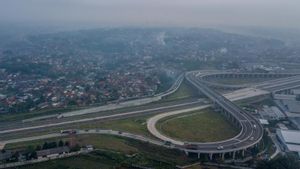JAKARTA - The Indonesian manufacturing Purchasing Manager's Index (PMI) which contracted to 49.3 points in July 2024 has become the focus of President Joko Widodo (Jokowi).
Minister of Industry (Menperin) Agus Gumiwang Kartasasmita said that Jokowi asked for this condition to be watched out for.
The Indonesian manufacturing PMI was recorded to have fallen to 49.3 points into a contraction phase.
In fact, for 34 consecutive months previously, the Indonesian Manufacturing PMI was able to survive at the expansion level.
"President Joko Widodo at the Cabinet Meeting this morning also stated that the contraction in the manufacturing PMI needs to be watched out for because several countries in Asia are also experiencing it and the component that has decreased the most is from the output side," said Agus in a written statement quoted on Tuesday, August 13.
In the Cabinet Meeting held in the Indonesian Capital City (IKN), Jokowi said that the high burden of raw material imports due to rupiah fluctuations or attacks by imported products entering the country could affect the weakening of domestic demand.
"He emphasized that the use of local raw materials and also protection of domestic industries and must be able to find non-traditional markets and new market potential as export destinations for Indonesian products," he said.
In addition, the same condition was also experienced by the July 2024 Industrial Confidence Index (IKI) which fell to 52.4 from the June 2024 IKI of 52.5.
The slowdown in the IKI value in July 2024 was influenced by the decline in the value of the new order variable and the still contracted production variable.
"This shows the declining confidence or level of optimism of industry players. One of the reasons is the lack of clear legal certainty," said Agus.
Even so, Agus is optimistic that the performance of the manufacturing industry in the country can still recover if supported by pro-business policies.
The policies include the availability of raw materials for production, sustainability and expansion of competitive industrial gas prices and firmness regarding import substitution.
"The policy can be implemented well if the coordination carried out is also in accordance with the rules. All parties are also consistent and transparent in truly defending the domestic industry," he said.
According to Agus, the processing industry consistently provides the largest contribution to the national economy, which is reflected in the achievement of the second quarter of 2024 of 18.52 percent.
This figure is higher than the same period last year, which was around 18.26 percent. Due to its contribution, the processing industry became the largest source of economic growth in the second quarter, which was 0.79 percent.
"For the second quarter of 2024, the growth of the non-oil and gas processing industry reached 4.63 percent (yoy), slightly down from the growth in the first quarter of 2024 which was 4.64 percent," explained Agus.
Agus assessed that the growth of the non-oil and gas processing industry was driven by domestic and foreign demand.
For example, the food and beverage industry grew by 5.53 percent due to increased domestic demand for food and beverage products along with the Eid al-Fitr and Eid al-Adha moments and the rice harvest which boosted the supply side.
Then, the basic metal industry grew by 18.07 percent due to increased foreign demand, such as iron and steel products and national steel consumption.
In addition, the chemical, pharmaceutical, and traditional medicine industry grew by 8.01 percent in line with increased domestic and foreign demand.
"Amid the brilliant performance of these sectors, the textile and apparel industry actually contracted by 0.03 percent (yoy). This was due to a decrease in textile production along with the surge in imported textile products that flooded the domestic market," explained Agus.
SEE ALSO:
Furthermore, the leather, leather goods, and footwear industries also experienced slower growth, which was 1.93 percent (yoy).
This was due to a decline in footwear production along with the closure of several factories due to the decline in domestic and foreign demand.
The decline occurred in Banten Province, West Java, and D.I. Yogyakarta.
The English, Chinese, Japanese, Arabic, and French versions are automatically generated by the AI. So there may still be inaccuracies in translating, please always see Indonesian as our main language. (system supported by DigitalSiber.id)
